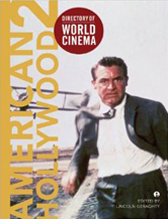
REVIEW: RocknRolla
With the release of RocknRolla, his fifth cinematic feature, director Guy Ritchie seems to have acquired the wisdom of a director firmly committed to the mantra, ‘If it ain’t broke, don’t fix it’. After the relative critical and commercial success of Lock, Stock, & Two Smoking Barrels (1998) and Snatch (2000), Ritchie’s career subsequently nose-dived with the disastrous Swept Away (2002) and the all-but-anonymous release of Revolver (2005).
Raising a white flag and surrendering to popular demand, Ritchie’s latest film signals a return to the tried and tested formula of his earlier work. Deploying the London setting and interweaving narrative form of its predecessors, RocknRolla threads together a cockney gangster plot involving Russian top-dog, Uri (Karel Roden), an irascible English mob boss, Lenny Cole (Tom Wilkinson), and a group of small-time crooks (led by the charismatic coupling of Gerard Butler and Idris Elba as One-Two and Mumbles).
 As with Lock Stock and Snatch, the characters of RocknRolla are subjected to series of chance encounters, double-crossings, and collusions, which Ritchie uses to amp up the humour and dramatic dynamism of his film. When One-Two and Mumbles find themselves in debt to Cole after a land deal goes awry and in desperate need of payback cash, the pair inadvertently snatch from Uri a bounty that was bound for the pockets of Cole, thereby ensuring a three-way conundrum.
As with Lock Stock and Snatch, the characters of RocknRolla are subjected to series of chance encounters, double-crossings, and collusions, which Ritchie uses to amp up the humour and dramatic dynamism of his film. When One-Two and Mumbles find themselves in debt to Cole after a land deal goes awry and in desperate need of payback cash, the pair inadvertently snatch from Uri a bounty that was bound for the pockets of Cole, thereby ensuring a three-way conundrum.
Beyond the form and setting, other key characteristics of Ritchie’s work are once again in place, from the colourful dialogue and punchy macho banter through to the ‘prized item’ that functions to bind together the film’s multiple plotlines. In Lock Stock it was the antique guns, in Snatch the diamond, and here it’s a mysterious painting that passes between the characters, drawing them inexorably into each other paths and cementing their disparate fates.
However, it isn’t all ‘been here seen that’ for Ritchie this time around. The introduction of the Machiavellian femme, Stella (played with smouldering ease by Thandie Newton) is a nice touch, while the representation of a gay character amidst the ground-level tough guys, which initially lends the gang an interesting conflict, disappointingly falls back on camp parody by the film’s close.
The film has other flaws too, particularly the ‘rock n roller’ narrative involving Johnny Quid (Toby Kebbell in a neat Pete Doherty impersonation), the junkie stepson of Lenny Cole who usurps then film’s central position at the end, despite having remained on the outer throughout, while other threads are left hanging. Occasionally too, Ritchie lets his music video clip stylings get the better of him, with some sequences – particularly a wounded foot chase between Mumbles and the Russian mobsters – eventually wearing out their welcome.
And yet, in spite of the fact that Guy Ritchie’s gangster ‘formula’ lacks the self-awareness of Quentin Tarantino’s early retro-pastiche (such as Reservoir Dogs), and the complexity of Martin Scorsese’s mobster films, there’s still something indelibly likeable about his work, and, at least for the moment, worthy of another visit.





RSS feed for comments on this post. TrackBack URI